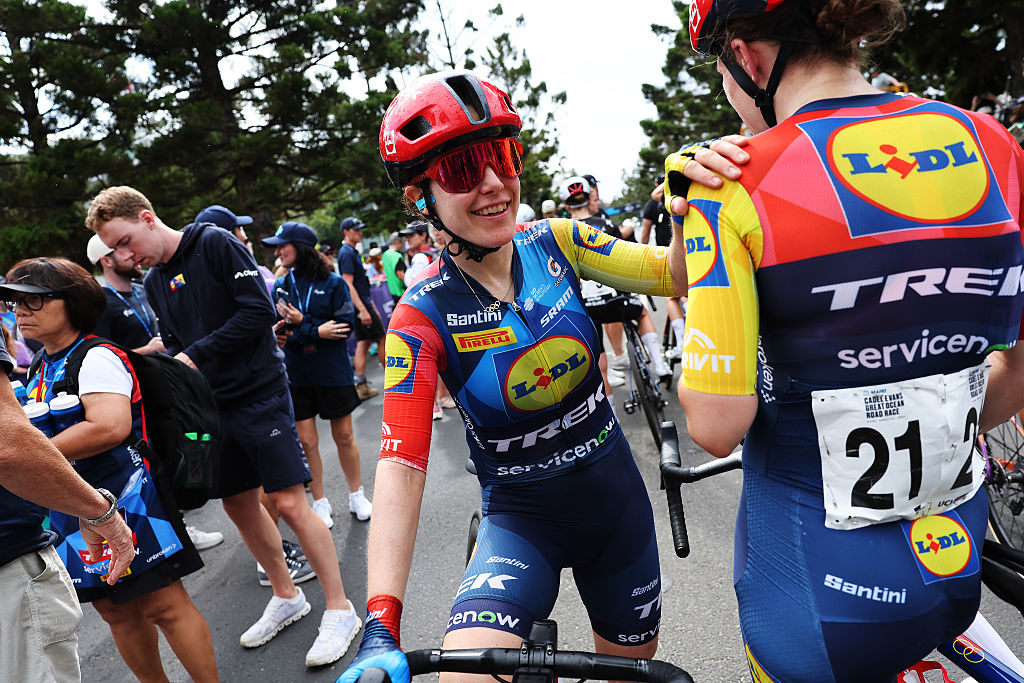Hyde back on track after injury-plagued season
US champion talks about his comeback, racing in Europe and Van der Poel's dominance
The latest race content, interviews, features, reviews and expert buying guides, direct to your inbox!
You are now subscribed
Your newsletter sign-up was successful
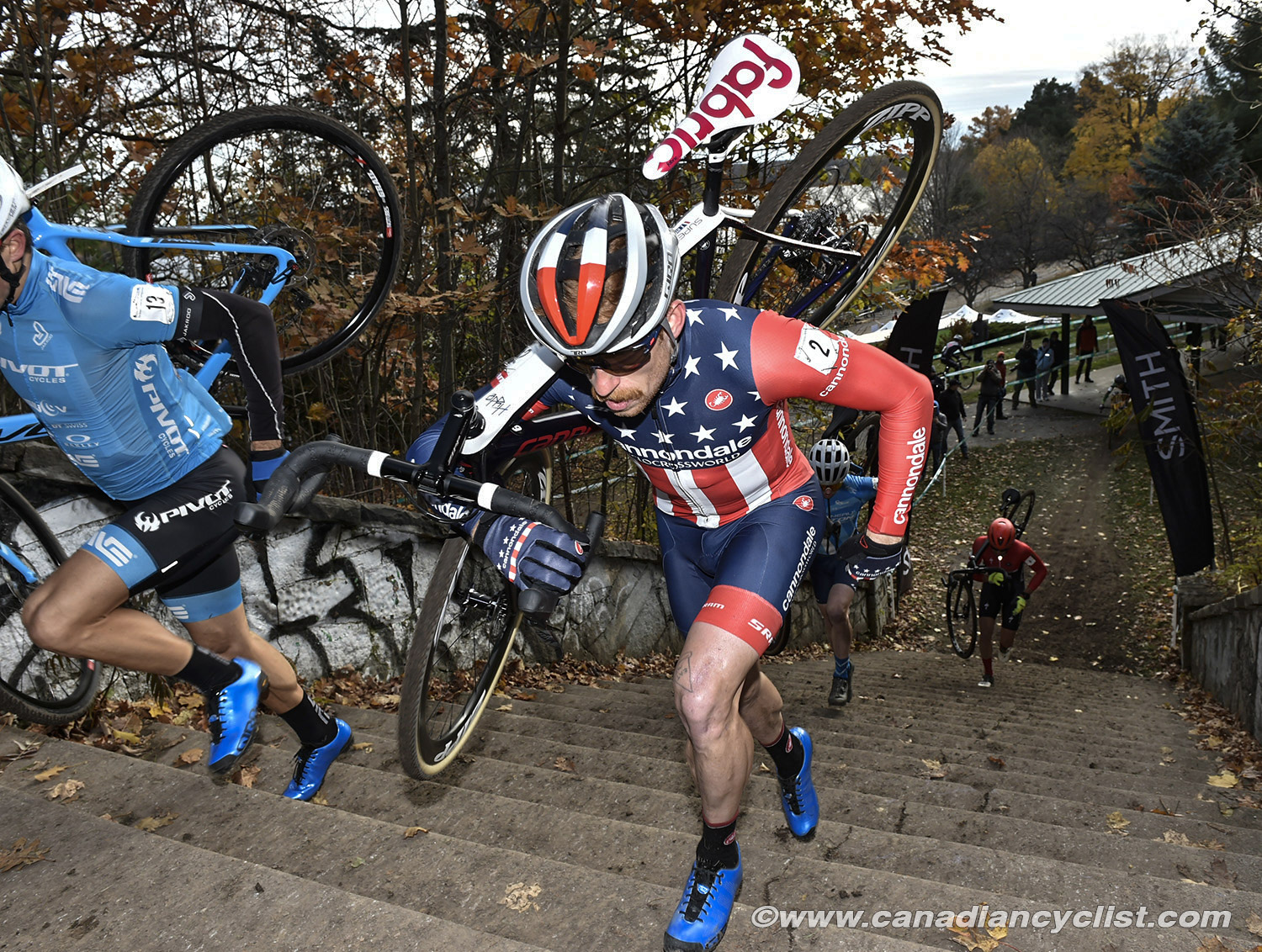
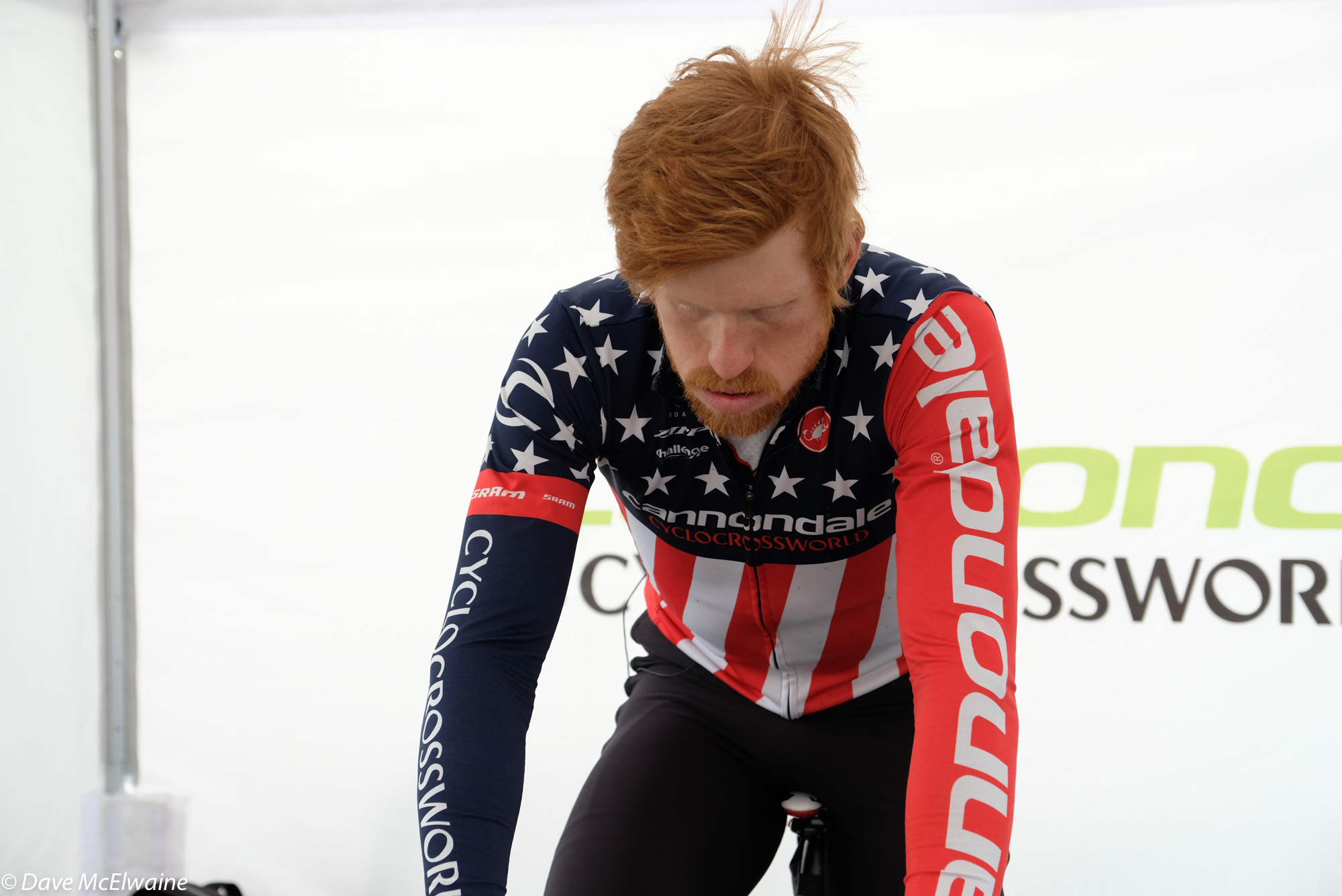
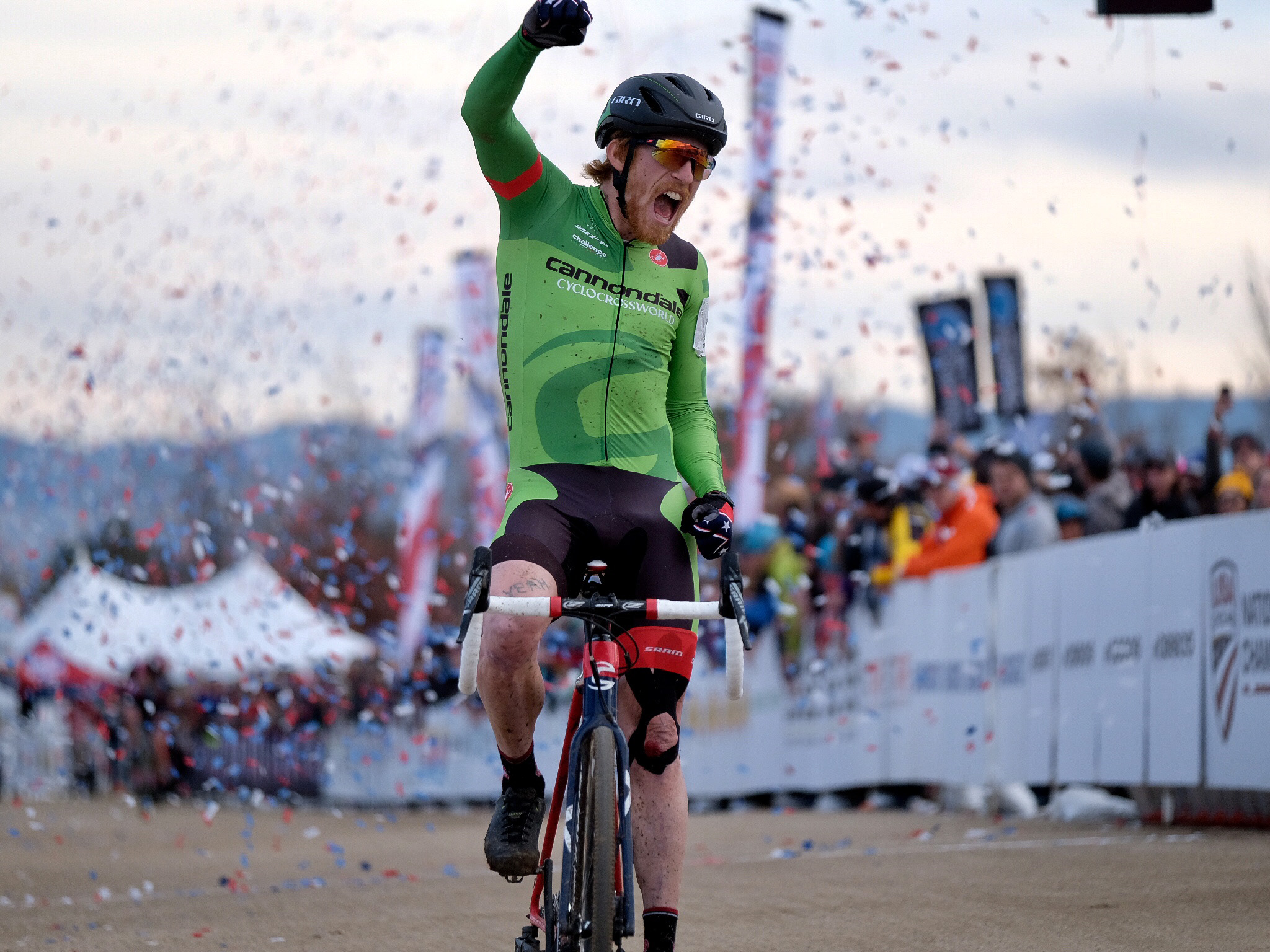
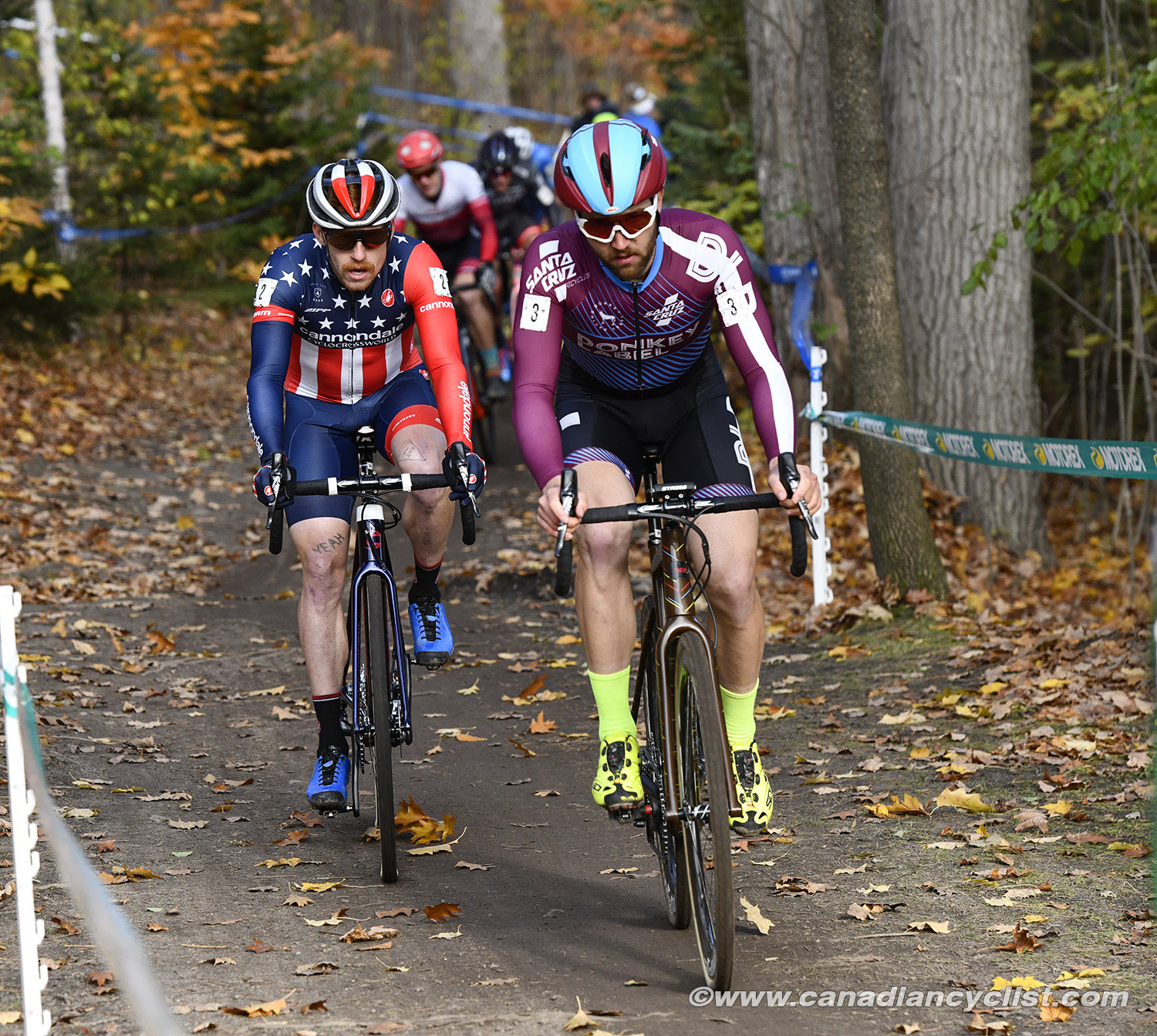
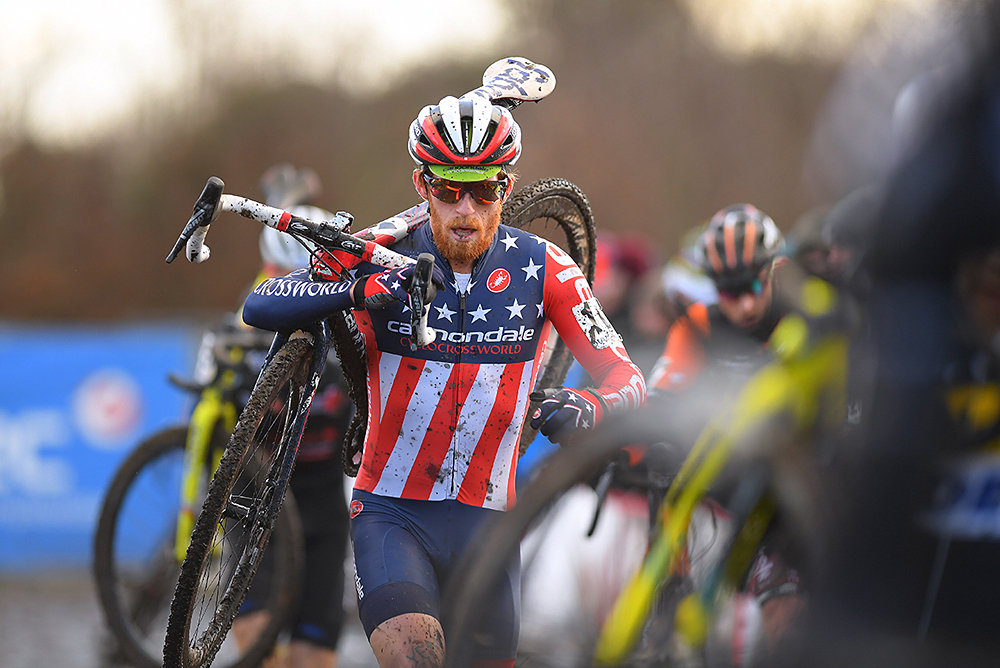
US cyclo-cross champion Stephen Hyde ended last season on a high - ranked 13th in the world. The 31-year-old was also the Pan American champion and had strong results in Europe, taking 11th in the Namur World Cup last December and 15th at the world championships in February.
This season has been a different story altogether. After starting strong in Rochester, Hyde crashed hard in the first World Cup in Waterloo, Wisconsin - but his injuries were just the start of a cascade of misfortune. Through perseverance, however, the Cannondale-Cyclocrossworld rider has regained his form and hopes to show it at this weekend's UCI C1 race in Warwick, Rhode Island.
"Right now, I feel great. All the training is to plan, and I'm really excited to get back to racing," Hyde tells Cyclingnews. The NBX race this weekend brings back memories of his early days racing the UCI cyclo-cross circuit in 2012. "I haven't been there in a lot of years. It was one of my first UCI races and I really look forward to it. Then I go down to Athens for a little training camp for a week, and up to Hendersonville, North Carolina for NCCX. And then over to Nationals."
Hyde's goal early in the season was to defend his title in the Pan American championships, but the trouble began months before.
"On the first day in Madison, I actually had an asthma attack on the first lap in the first race - about half the field there, both the men's and women's fields, all reported like breathing problems - and then the second day at the World Cup, I had a bad crash ... Somebody kind of lost their rear wheel on a rut and it put them sideways - it was Lars van der Haar - I kind of T-boned into him and went down pretty far to the bottom of the course and actually landed on the back of my shoulder upside down, and it ended up like compressing my rib cage and fracturing my sternum, and along with that quite a few other like pretty bruised, strained muscles. It took me out pretty hard.
"I've had a lot of injuries, I've broken a lot of bones, and that definitely took the cake."
Being an athlete, the first thing Hyde did, of course, was hop on the indoor trainer and ride as long as he could stand it.
The latest race content, interviews, features, reviews and expert buying guides, direct to your inbox!
"Those that know me pretty well know that I am pretty - let's say tenacious - and I was back on the trainer the day after for like half-hour sessions up until I could ride, but I didn't ride outdoors for a couple weeks. I was back to training and racing in six weeks time."
Before he could get back to racing, however, news came that his older brother was killed in a car crash - and the shock and grief had unexpected effects on him.
"It was a kind of a blow I wasn't really expecting, and I honestly wasn't expecting it to affect me in such a physical manner and it did - it really did - it took a lot out of me," Hyde says. "Now, you know I certainly feel for anybody else that has lost anyone that's close to them like that. And I now know the struggle of regaining composure from that - it was tough."
Again, persevering through now physical and emotional wounds, Hyde got back in the mix in Cincinnati, managing a top 10 in the C1 race and then third on the next day's C2 event. But misfortune wasn't quite done with him yet.
"I did some more training and was getting ready to hopefully get my third Pan Am title, and I ended up having a crash into the stair set and had a really bad - I think class 2 - sprain on my ankle and ended up dislocating a rib and had a concussion from it.
"So that sucked, that took me out again. Another out-of-state hospital visit and another setback to go home to."
Fortunately, he had his support system already dialed in from the previous injury and was able to push through the recovery and get back to training. "It went a lot smoother this time, I was able to train really well. I have a good team of people here in that in the area that helped me with bodywork, etc."
US champion Stephen Hyde at Azencross in Belgium
Europe, Van der Poel and is he killing the sport?
Now back on track, Hyde is looking forward to defending his national championship title in Louisville in December, then going back to Europe for an extended period - taking in the World Cups and other holiday races before a two-week training block in Spain and then the world championships.
With less racing under his belt this time, heading back to Europe where Mathieu van der Poel has been crushing the elite men's races every week could be daunting. But Hyde knows what to expect now.
"Every time I go back it's never an easy transition. However, what it has given me is the ability to set the bar where I need it to be, and be able to focus on that and say like, 'Okay, you can do this in races here'. You can win every race you enter in the US and you still can't use that as a bar for going over to Europe.
"When I train, I train for that intensity and I train for that type of racing. It's a different speed. It's a different sport in some ways."
The speed of the European races is higher than ever, thanks to Van der Poel. There has been criticism that his dominance is killing the sport, and although Hyde disagrees with that - and lists many reasons why the sport has come to this - he still finds the men's races hard to watch.
"I mean if it wasn't for trainer rides, I wouldn't watch those races right now. I think they're so boring. I'm so tired of it. Who knows? I hate that because I love the sport and it gets the best sport in the world. I'm fanatic in so many ways, but I don't care to watch the races."
He doesn't think it is necessarily killing cyclo-cross, however. "If you look at mountain biking, Nino Schurter has won everything, every year. He's been so dominant, but that hasn't killed the sport. If anything, it's gotten more popular. He has really brought a lot of clout to mountain bike racing again. And if you look at the coverage the fans are going to those races like they've never gone before. I mean, it looks like the '90s out there sometimes, the crowds at the World Cups are massive."
But European 'cross is a different beast if for the sole reason that the fans are placing bets on the riders. When Sven Nys and Niels Albert were fighting neck and neck a few years ago, there was a bit of excitement and danger placing a bet on either one to win. Now, the odds are pretty good that Van der Poel will ride away to victory.
"Are people going to get over that from a fan standpoint? Are they going to get over that from a betting standpoint? I don't know."
Hyde expects that as the season goes along, Wout Van Aert will turn the tables as he did at the world championships, and compares the two to the fable of the tortoise and the hare.
"You have this like steady progression with Van Aert, this focus on preparation, on the long run, on his goals. He's the tortoise. And then you have the hare, Van der Poel. He wants to win every single race no matter what, and when it doesn't all work out 100 per cent, he throws a bit of a hissy fit and you know, it just kind of falls apart.
"We've seen that at the world championships where he went in with the best fitness, but couldn't keep his head together, couldn't keep those problems from being real problems for him. So you never know. I mean, that's I think one of the that's probably the only thing that's exciting about this season. Watching him ride away from all those races this season, it's whatever. But knowing that there's still a world championships to deal with and anything could happen, then that's a different story."
Van der Poel is able to be so dominant for the same reason that Van Aert is able to go straight from 'cross season onto the podium at Strade Bianche. Cyclo-cross is no longer a fun off-season distraction for road racers. Riders are now specifically training year-round for it, Hyde says. Sven Nys was the one who started it. The riders who were juniors and U23s when Nys was on the top of his game are the riders specializing in cyclo-cross today.
"That's how you get to [this] level - you use all of this other stuff for preparation and you pull back when you need to and build your entire year around cyclo-cross. It's led to a lot of advancements and a lot of differences in technique.
"There's a reason why you look at the same course going back 10 years ago, stuff that was totally unrideable back then, they're riding it now. Some of the bikes are different but, like honestly, there's not that much of a difference in tires. The difference is in the specificity in the training for the races and when they're peaking."
But Van der Poel is still an anomaly. "Being able to do that on a literally weekly basis - to go from a mountain bike World Cup podium to a win in a WordTour level road race ... and I would put a lot of money that if on the next Sunday there is a cyclo-cross race he would win it, no doubt about it.
"I don't know. I mean, I think when you take the genetics, you take the drive that these guys have and you take the access to available methods for training and support, then the sky's the limit on that stuff. I just hope, you know, it's all fair."

Laura Weislo has been with Cyclingnews since 2006 after making a switch from a career in science. As Managing Editor, she coordinates coverage for North American events and global news. As former elite-level road racer who dabbled in cyclo-cross and track, Laura has a passion for all three disciplines. When not working she likes to go camping and explore lesser traveled roads, paths and gravel tracks. Laura specialises in covering doping, anti-doping, UCI governance and performing data analysis.

